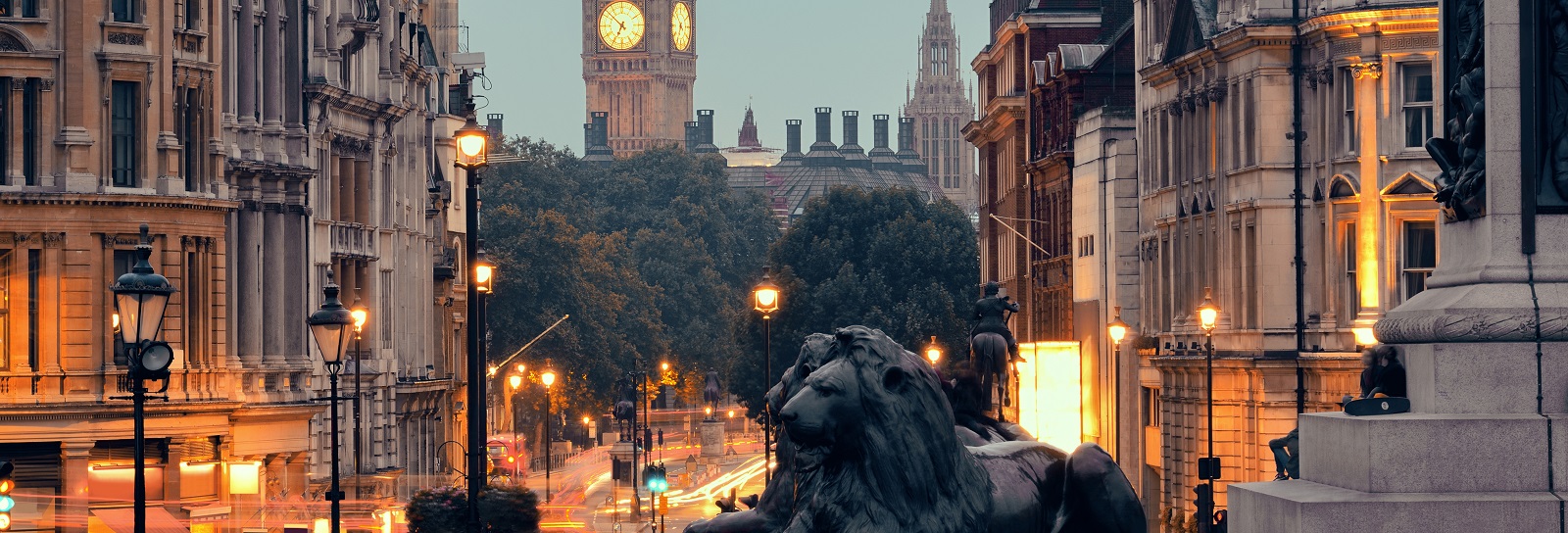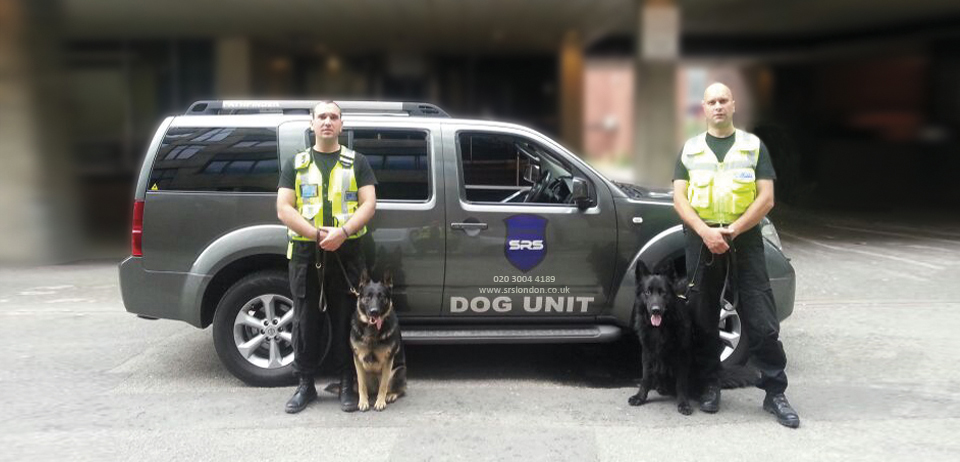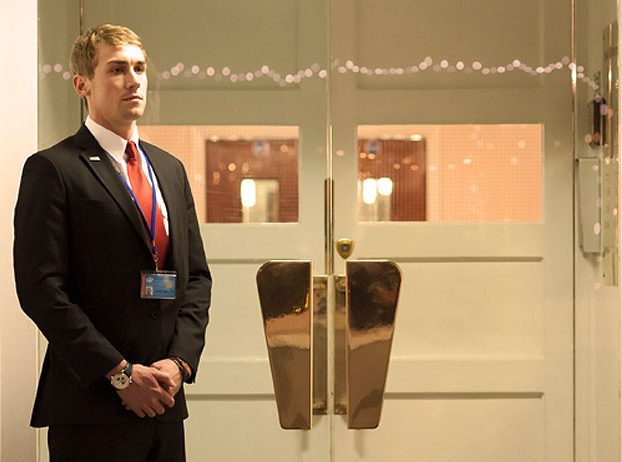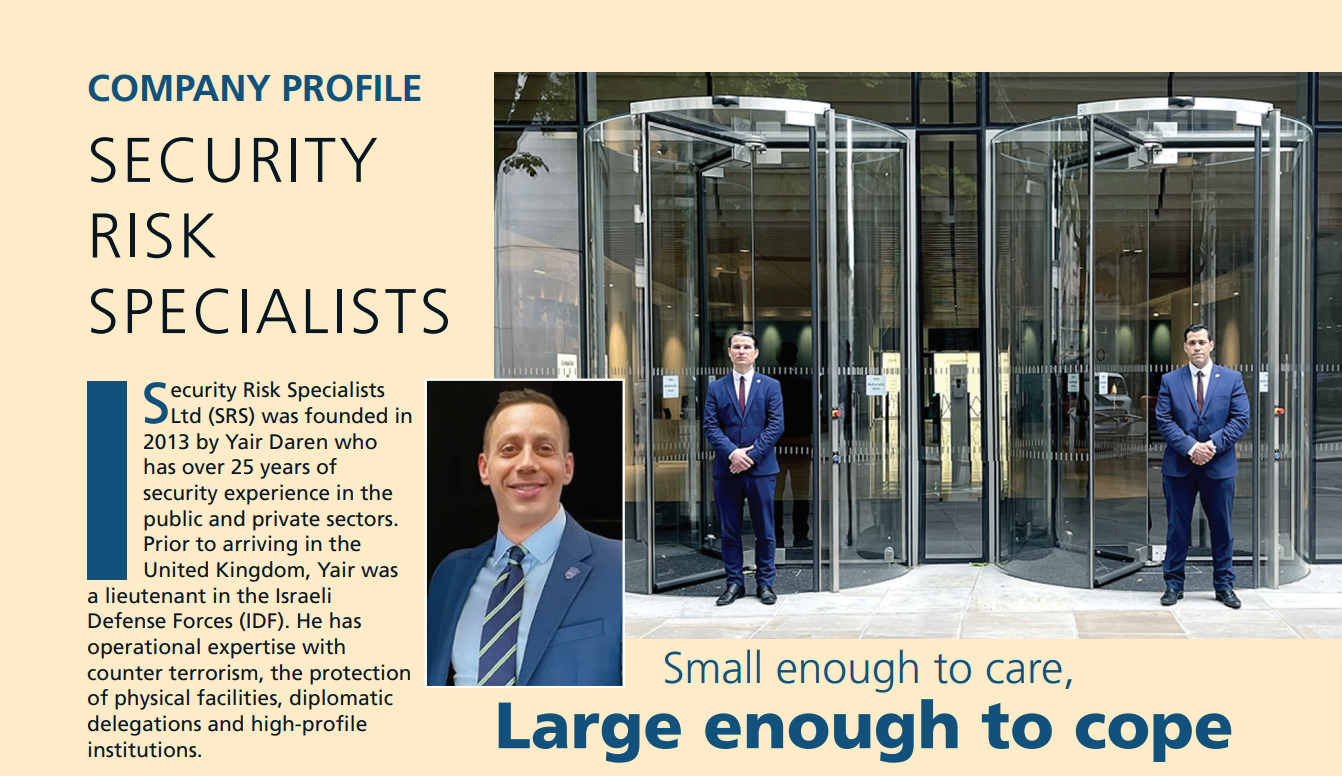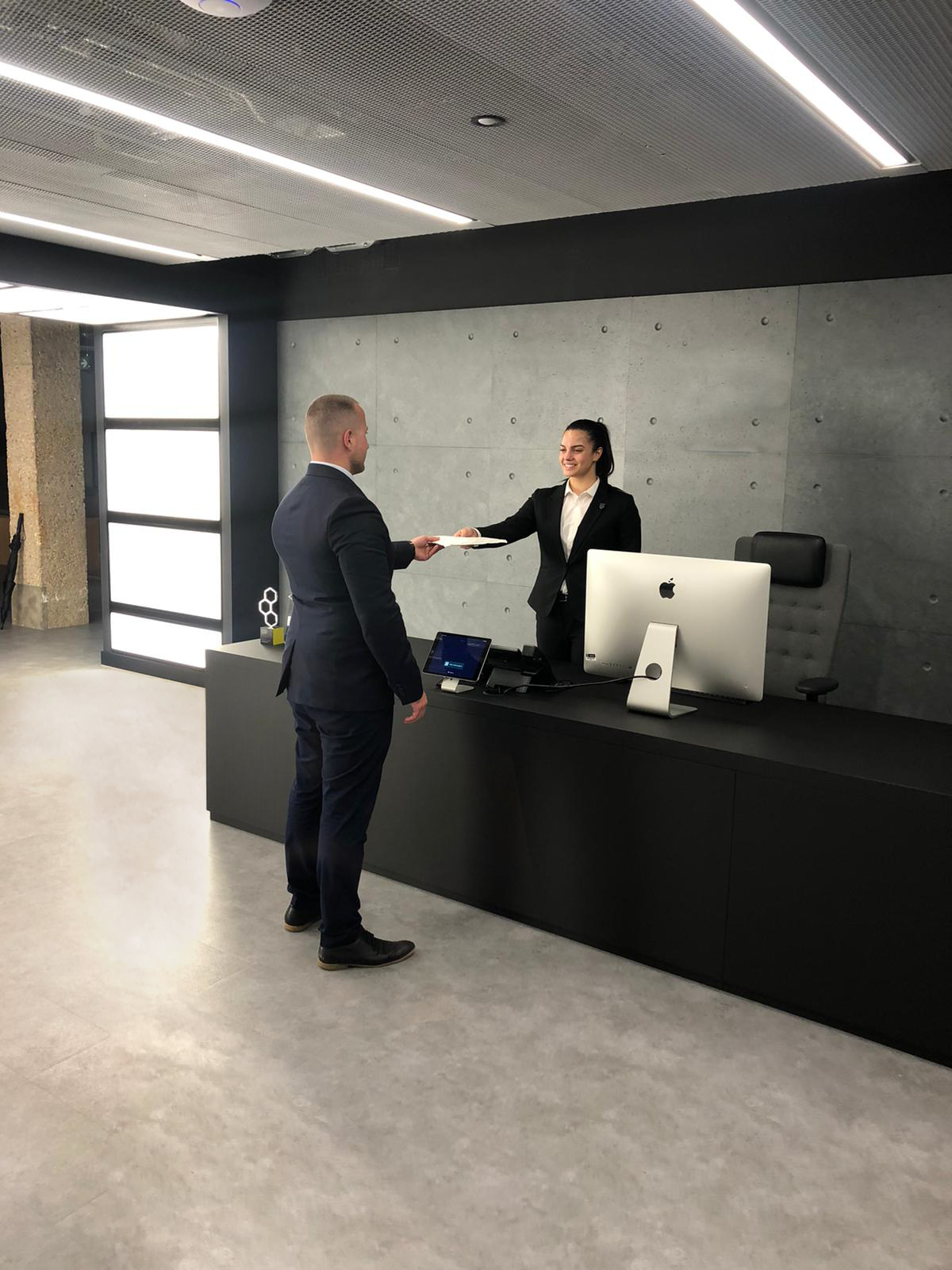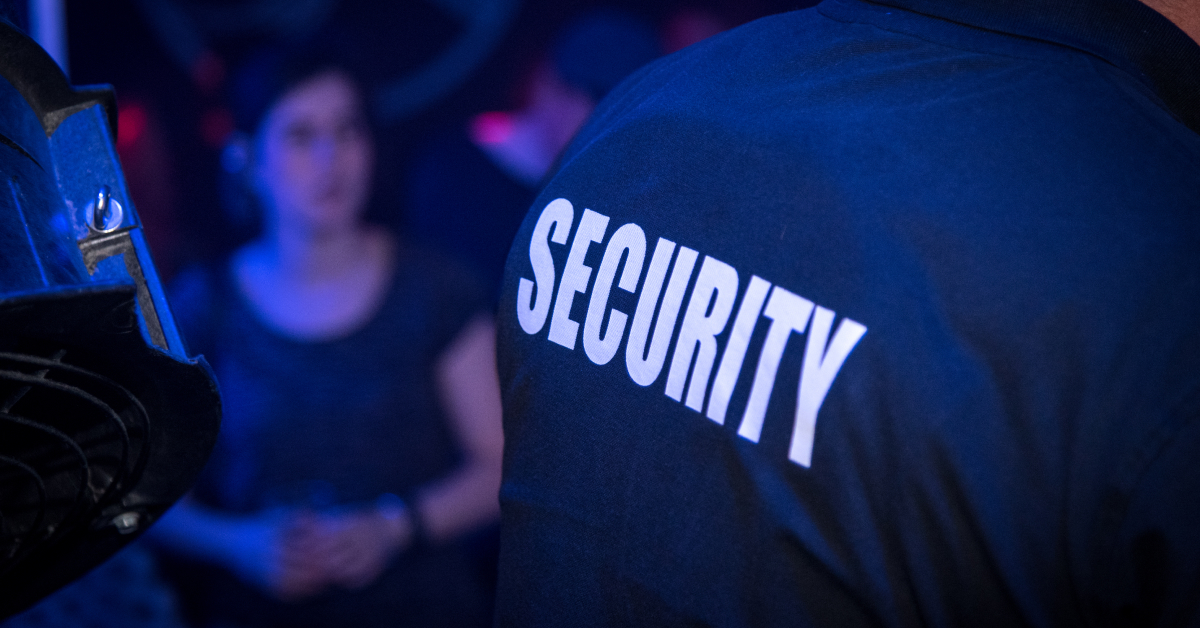It was early one freezing January morning and one of our dog handlers was patrolling an industrial estate in Old Kent Road. At 3am he noticed that the perimeter fencing had been breached and over thirty squatters were congregating within a fenced off area. Keeping calm he quickly made contact with the Metropolitan Police and with the SRS on duty Operation’s Manager while continually observing and monitoring the situation. Given the size of the group and conscious of personal safety he wisely elected not to confront the group but instead ensured that his communications were clear, concise and accurate and he was able to express calmly and efficiently the gravity of the risk to the site.
Our SRS Duty Operations Manager was on hand to advise our Handler and provide him with the support he needed. Once the call ended our Operations Manager alerted the client straight away so they were aware of the situation as it was unfolding.
The Metropolitan Police immediately dispatched several units and on arrival they were met by our dog handler who made sure they were apprised of the situation. He accompanied the Officers as they approached the group and using his body worn camera he was able to record the situation in real time. The use of the body worn camera can, in many situations, be of critical importance. Not only does it help protect the safety of the handler but it can be a crucial source of evidence gathering to demonstrate an offence is criminal, rather than a civil offence, something that it is not always straightforward to prove. The body worn camera provides both an audio and visual recording, while most CCTV footage provides a visual recording only and of course the body worn camera is more versatile as it can accompany the handler rather than capture specific and limited areas. In this instance the footage provided evidence of criminal damage to the fencing thanks to the handler’s vigilance. As the crowd was approached, the scene was recorded by our handler and the footage was later shared with the client together with a full, detailed and accurate report. Alongside the dog, the body worn camera can also act as a deterrent as aggression can be toned down once a subject realises they are being recorded.
Substantial police resources were deployed including a police helicopter and more than 10 arrests were made despite the fact that many of the group tried to escape through the main entrance of a nearby commercial premises where the fencing had been removed beforehand. After the incident had been diffused, our Dog handler conducted a thorough check of all buildings within the site to ensure there was no trace of any damage to the property or intruders lurking inside. Temporary measures were implemented to secure the fencing and the client was alerted of the need to arrange a more permanent repair during daylight hours.
This case study demonstrates a number of positive actions which led to the successful removal of potential squatters and a number of arrests. We were pleased and relieved to ensure that our client was spared the difficult, inconvenient and expensive situation of dealing with a less favourable outcome and that they were given live updates rather than only learning about the incident the following morning. We were proud of the diligent and pro-active patrol work of our dog handler, particularly during the most difficult time of the morning when weariness can kick in and it can be challenging to stay motivated. His ability to quickly identify the threat in its early stages before it had escalated and act in a focused and professional manner was a credit to himself and to SRS. His ability to access the immediate support from a Manager at 3am in the morning is not something many London Security Companies are able to offer, nor is the ability to update clients in such a timely manner.
Confident, knowledgeable staff with high levels of professionalism and integrity who can communicate well are essential in providing the best levels of security and are a consistent asset within SRS, supported by an equally motivated and customer focused management team.
Criminal or Civil Offence? The grey area where audio-visual evidence wins
A major issue and one that is difficult to police is squatting. There is no legal definition of squatting in England and Wales but squatters are generally defined as people occupying property or land without permission of the owner or person legally entitled to occupy it.
Legally, squatters are trespassers and trespass is a civil matter – i.e. a dispute between individuals – not a criminal matter. Thus squatting is unlawful (a breach of civil law) but not illegal (a breach of criminal law). This can make evicting squatters a complicated, time consuming and infuriating process.
Professional squatters are often well aware of their rights and will intentionally ensure their actions can be defined as only civil and not criminal. Squatters may choose to inhabit commercial, residential, agricultural and industrial buildings but inevitably favour empty premises. Consequently, empty buildings tend to be targeted and can include those awaiting demolition, disused warehouses or abandoned commercial and residential property. Entry can be relatively easy and unchallenged and seasoned squatters can be adept at avoiding committing criminal offences. They will select premises with insecure doors or missing windows, and those without CCTV or they will take care to avoid CCTV or ensure entry can be achieved without causing criminal damage. If no criminal damage is caused, or it cannot be proved, then squatting can be deemed a civil offence and therefore police intervention can be limited. Experienced squatters can be at pains to avoid accusations of burglary by ensuring no intention exists to cause damage or to steal once inside the building. Of course, once squatters are inside, the risk of damage to the property is significant and this can include fire damage as candles are often used where electricity no longer functions.
Vigilant security presence, with dog handlers and body worn cameras, as described in the case study above, can be a fundamental tool in preventing squatters from attempting or succeeding at occupying premises, or can indeed provide valuable evidence where an incident is indeed criminal rather than civil.
The ABC of Communication – an essential value in the quest for excellence as a Security Company
At the most basic level, communication is the transfer of meaning between the person sending it and the person receiving it. People sometimes forget that your actions and attitude provide additional meaning to your written and spoken messages. Your behavior portrays to others important information about your mood, disposition and opinion and one’s response is undoubtedly influenced as a consequence. Communication can disclose the authenticity and sincerity of a person’s character and, therefore, that of the Security Company in London they represent. It is important to be clear when communicating and within the security environment remember A,B,C:
A – Accuracy – be precise in what it is you are communicating. Offer educated opinions but do not embellish or try to guess. Say what you see.
B- Brevity – be brief in what it is you say and get to the point quickly setting out what you need or expect. Time can be essential in the development of a situation and its outcome. Don’t take 100 words to say what, in reality, only takes 20 words. This will reduce confusion or ambiguity.
C- Clarity – communication should be clear and easy to understand so avoid over complication. This is especially important when using mobile telephones or radios.
The above is as essential in face-to-face communication as it is via hand-held mobile devices and conveys a sense of professionalism and confidence to those you are communicating with. A good communicator should be aware of their choice of words.
Good communication as a team leader, supervisor or manager involves listening to individuals from all levels of the Security Company and encouraging opinions. Making those you work with or provide a service for clear about your expectations is a skillful quality and works both ways. Involving others is an essential tool in developing a plan of action especially if decisions are being made remotely.
Effective communication and effective leadership are very closely inter-connected. Leaders should be skilled communicators in various relationships within the organization and with those businesses and communities they operate within. London Security Guards should not under-estimate their own leadership qualities as it is they who are often the first to initiate a response to a spontaneous incident and may be integral to the initial contact with outside agencies; more often than not the emergency services. They, in particular, rely heavily on ABC so that they, too, can begin to plan and make decisions.
Visibility is a form of communication so communicating well means not being out of sight. Be consistent and let others see what it is they are dealing with, whether that is potential offenders or those for whom you are providing a service to. Patrolling and carrying out highly visible checks indicates to the client that you and the London Security Company have high levels of professionalism and integrity and would-be offenders checking out a premises or location can see a visual deterrent and someone who is alert and motivated.
Remembering to listen makes a person a good communicator – it is not all about talking. By listening you are able to gain a clear understanding of another’s perspective.
Security Risk Specialists take pride in the quality of the service they provide across all aspects of Security in London including Concierge Security, Residential Security, Office Security, Retail Security and Dog Patrols amongst many other services. Security Guards are selected for their personal qualities commensurate with the responsibility and standards expected by the company’s clients. Most guards have previous military or police experience and are highly motivated and disciplined.
The company’s Security Guards maintain a professional attitude regardless of location or time of day and carry out their duties in a diligent and timely manner. Always aware of specific threats and risks associated with each particular location the guards are fully briefed on plans of action and who or what to contact should an incident require attention.
London is a busy and vibrant city and as a consequence property is always vulnerable regardless of its whereabouts. Residential and office buildings are often subjected to burglaries whereas commercial and industrial property suffer similar acts of crime but, owing to their locations, are vulnerable to criminal damage, squatters or fly-tipping.
For any Dog Security, Manned Guarding or any other Security Requirements in London please contact us on 020 3004 4189.
